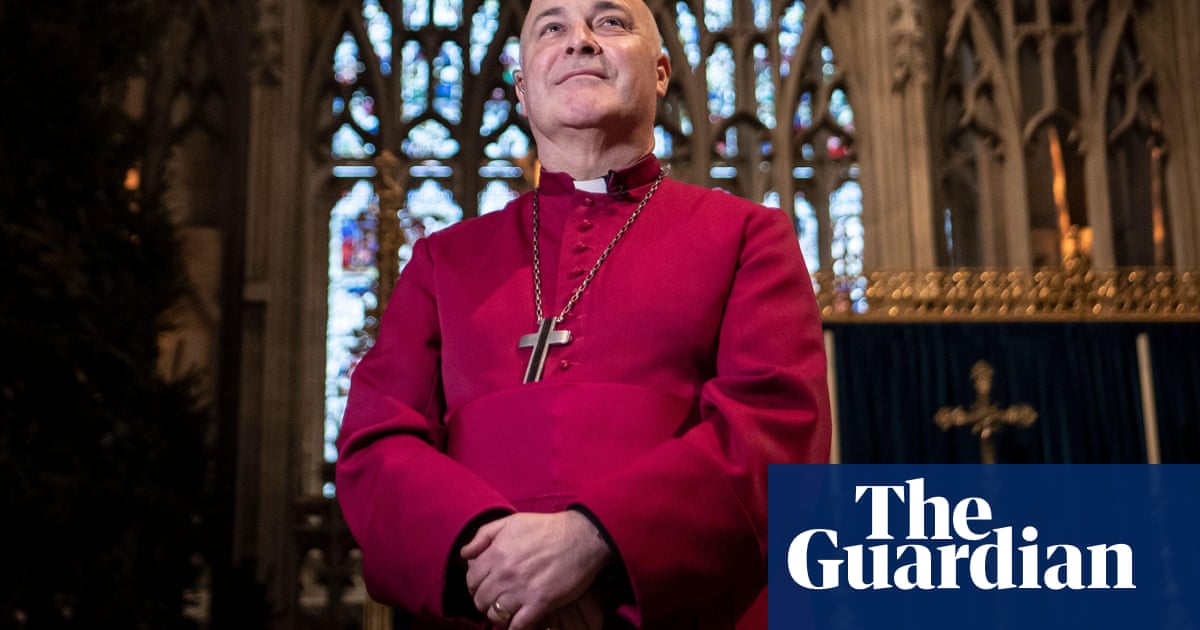The Church of England may need to rethink the role of archbishop of Canterbury after its “unprecedented crisis” over an abuse cover-up, Justin Welby’s second-in-command has said.
In an interview with the Guardian, Stephen Cottrell, the archbishop of York, said he would welcome a woman taking over from Welby. But he warned that the responsibilities of the job may need to be shared more widely in future.
Cottrell was speaking after Welby announced he would stand down in the aftermath of a damning report which concluded he took insufficient action over one of the C of E’s worst serial child abusers.
The church was in “unprecedented crisis” after the report detailed the scale of John Smyth’s abuse and the C of E’s failures and cover-up, Cottrell said. Welby’s decision to resign was “right and honourable for the sake of the church” and followed consultations with his closest colleagues and advisers, he added.
“We’re now in a period of transition and reflection. One of those reflections will be what sort of person we’re looking for to be the next archbishop of Canterbury, and what our expectations are of that person,” Cottrell said.
“Sometimes archbishops are treated as if they’re the CEO of C of E plc, and that isn’t how we work. We are at our greatest and our strongest in our local communities, but we do need leadership and oversight.”
The archbishop of Canterbury is leader of both the 85 million-strong global Anglican church and the Church of England with its 42 dioceses and 12,500 parishes. “I don’t think we’ll take any [roles] away, but we may need to think more seriously about how those responsibilities are shared,” he said.
The Crown Nominations Commission, the body that will recommend a name for the king to appoint as the next archbishop of Canterbury, is expected to draw up a “role profile” for the job in coming months. It will also invite the public to suggest possible candidates. The appointment process could take until the middle of next year.
Cottrell, 66, said his age in the light of the C of E’s requirement for bishops and archbishops to retire at 70 meant he was unlikely to take over the top job. “We need someone who can give at least five years, probably more like 10. So I don’t consider myself to be a candidate. That doesn’t change my commitment over the coming years, and I realise that for this next period, I am the person that people will look to.”
He expected candidates to include some of his “excellent female colleagues”. He said: “I would welcome a woman into the role, not just because they’re a woman but because they will be the best person for the job.”
Cottrell said he had not been given an advance copy of the report into Smyth’s abuse and its cover-up before publication. “I was shocked and horrified by what I read, and I’m still in shock,” he said. His first thoughts were with the victims and survivors, he added.
However, since Welby’s resignation, Cottrell has been accused of “ignoring” complaints about 11 other abuse cases and has also been urged to resign. Jasvinder Sanghera, a member of the C of E’s now-disbanded independent safeguarding board, said her concerns “went unheard”.
Cottrell said he was distressed by Sanghera’s claims. An independent report on the termination of the board published last December concluded that it was the result of a breakdown in relationships between members. It made no criticisms of individuals.
The management of the 11 cases was passed to “other appropriate safeguarding professionals, and Jasvinder is mistaken when she says I ignored them”, Cottrell said.
“I’m not going to resign. Like everyone who serves the church, I’m subject to the discipline and authority of the church. If people read the [independent safeguarding board report], they can make their own conclusions.”
The C of E needed to “move towards greater independence of safeguarding functions and complete independence of scrutiny of them” as recommended by Alexis Jay, who chaired the independent inquiry into child sexual abuse, he said. This would be discussed at the next meeting of the C of E’s ruling body, the General Synod, in February. “It’s the only way we will restore confidence,” he said.
Over the past 10 years “an awful lot of lessons have been learned” but the church was not complacent, he added.
“There has been a revolution in the way safeguarding is understood and practised … We now have a safeguarding officer in every single parish [and] every ordained person undergoes safeguarding training.”
He said: “I believe the church will come through this, but we need to be humbler, simpler and bolder. We have been humbled by this and we are ashamed. I want to play my part in becoming a church that looks and sounds a lot more like Jesus Christ, which for many people it doesn’t at the moment.
“I believe if we focus on those things in an undefended and gracious way, and with a penitent heart, then the church will continue to be the presence it needs to be. At the local level, which is what really matters, the church remains trusted and strong, providing support for thousands and thousands of people.”
∎